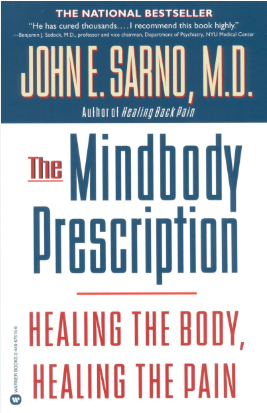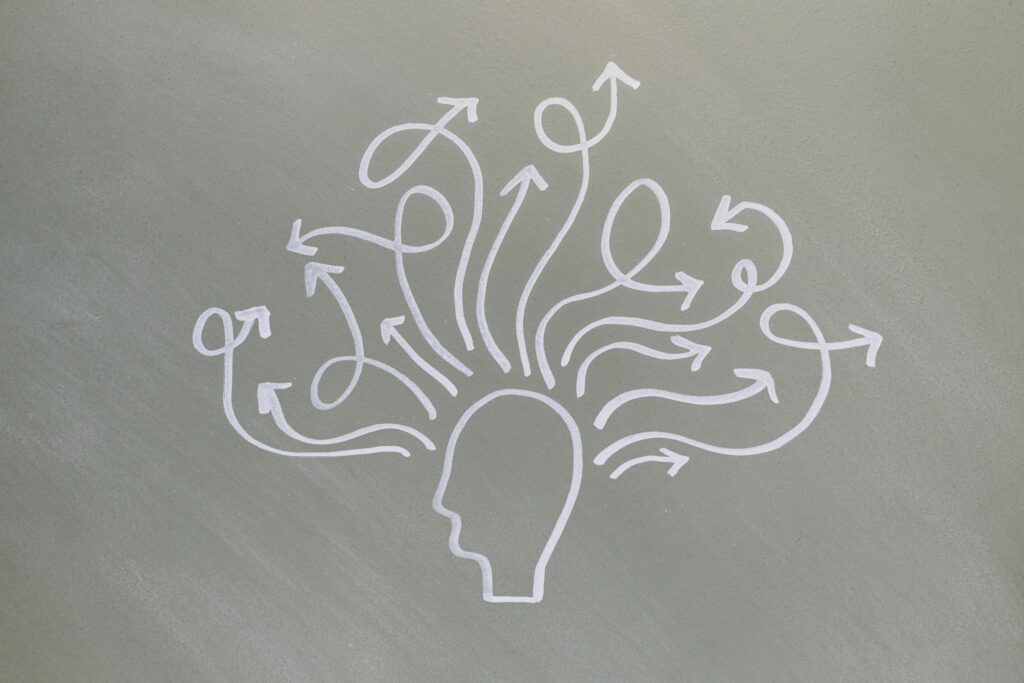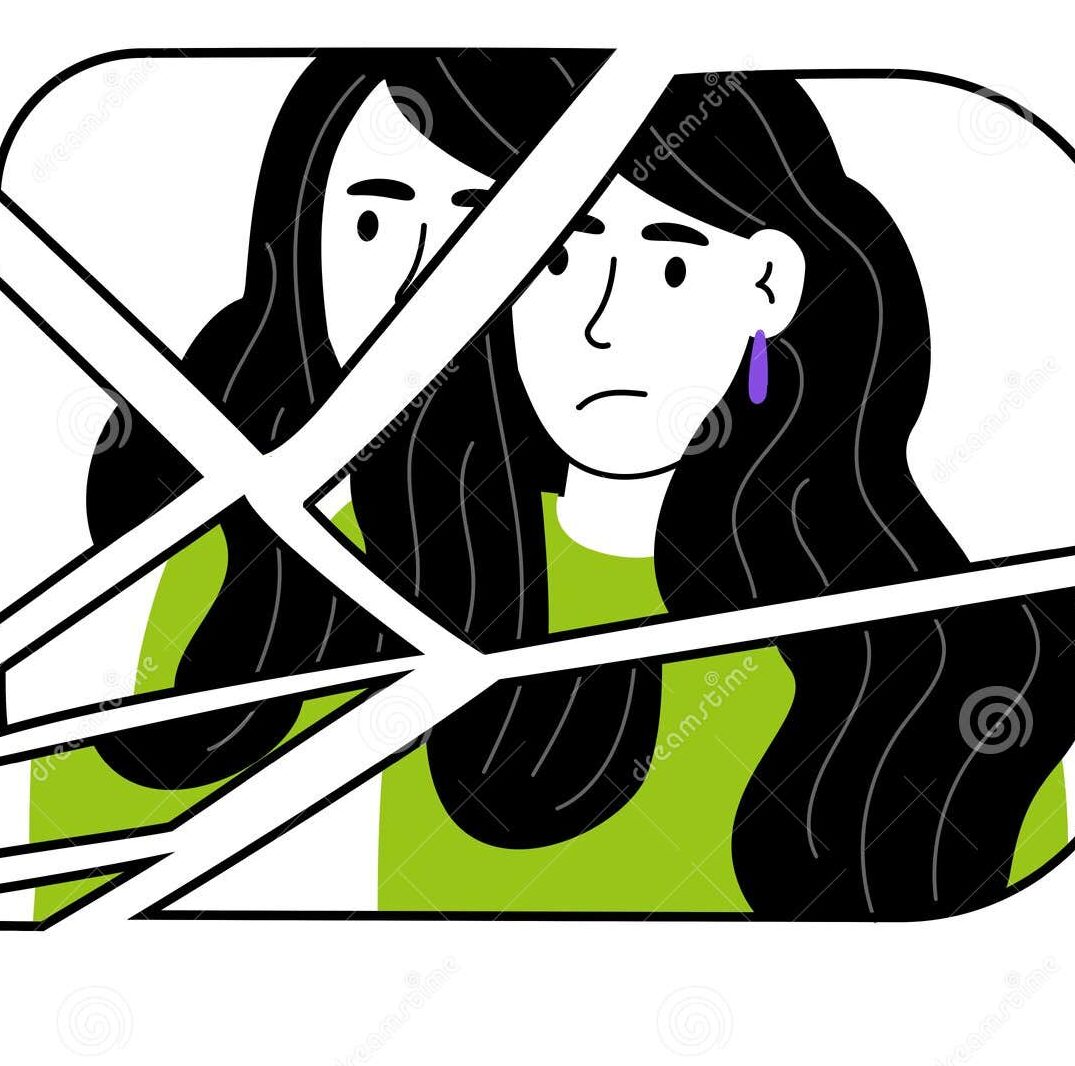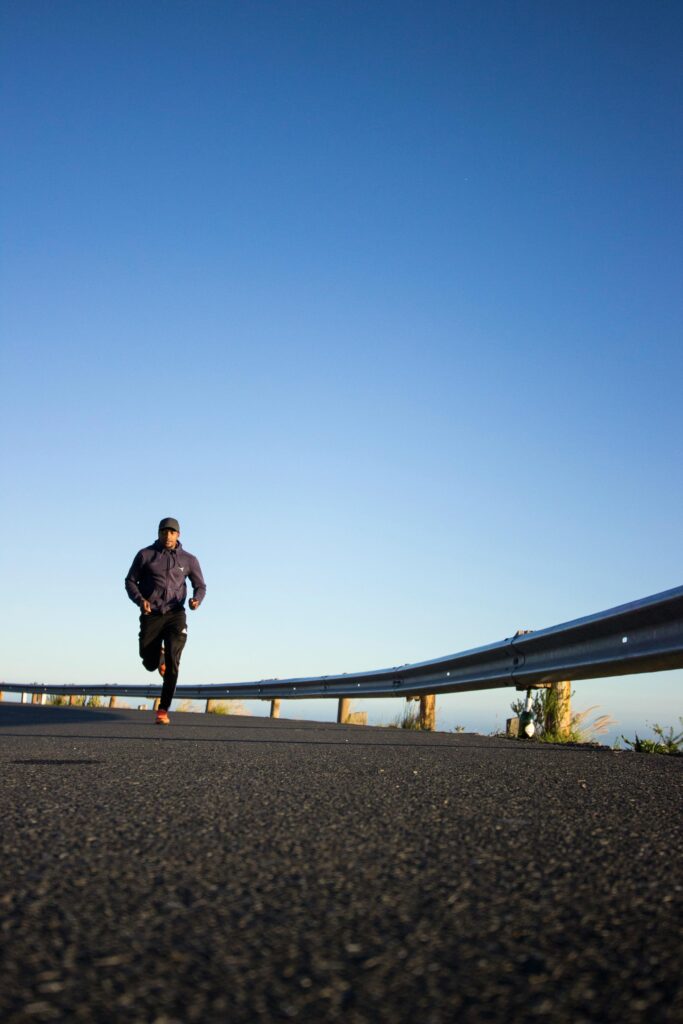A Reflection on my fears & mistakes, and learning how to move forward
- Don’t underestimate the power of your mind-body connection

It was just before Christmas of 2023, the day I flew back home from New Jersey to Texas, that an odd sensation settled in my right forearm – a tightness, like there was a rubber band squeezing my arm. Over the next few days, it evolved into a pain so intense that I couldn’t even write my name on a piece of paper. One night, I awoke shivering, trembling uncontrollably with a sharpness in my head that made me fear I had a brain tumor (hypochondriac much?)
I went to urgent care but was promptly sent home with anti-inflammatory medication and a referral to a neurologist that wouldn’t be available until after I flew back to New Jersey.
“It’s just stress,” my mother had told me, over and over again, completely exasperated by my worry. And while she poked and prodded to understand the anxieties in my mind (Was it school? Was it a boy? Was it work?) I was adamant that something was physically wrong with me.
I eventually decided it was just a pinched nerve, and that I’d be fine in a few weeks. However, a week after my doctor visit, I woke up to my left arm feeling numb and full of static. Both of my arms began to hurt chronically, flip flopping from one side to the other, but never simultaneous. Back at the university, I went to the school doctor, who suggested some physical therapy exercises. “Your cervical area holds most of your tension,” she had said, gesturing around my neck. “Try these and you’ll feel better in a few weeks.”
While I tried to take her advice, I found I was suddenly unable to do simple things I had done before, like carry groceries or wear a backpack without my shoulders hurting. I went to doctor after doctor, making specialist visits with the neurologist, the rheumatologist (at one point, I was convinced I had rheumatoid arthritis), the orthopedist. I got blood tests, which all came out fine. I got an MRI of my cervical spine, which did not indicate anything out of the ordinary. I went to physical therapy for months.

As more time went on and I couldn’t figure out what was happening, I began to become absolutely petrified. I spent all of my time indoors, only leaving for work or school, barely able to even go out with my friends. On the other side of the world, my cousin was telling me how she wanted to go trekking with me in the fall if I came to Nepal, and I was terrified of how I would even manage to walk or carry anything larger than a pint sized bag. How did I explain this invisible, mystical condition that had happened to me, seemingly out of nowhere?
When I told this to my mom (“how am I going to walk? how am I going to carry anything?”) she reiterated that it was stress. By October, I would be fine. I needed to stop dwelling on it and carry on with my life.
“I’m not stressed,” I had told her (for the millionth time). In fact, before I had come home, I had spent a full week after my finals hanging out in New York City with my friends, going to holiday markets and drinking hot chocolate. Why would I be stressed? And even if I was stressed, why would it hit me at the one time I was finally at peace and happy?
I tried to take her concerns seriously. I began to meditate and do yoga in my bedroom. I switched out my morning coffee for ginger turmeric tea. I started to see a therapist.
Was it helping? At the time, I wasn’t sure, but I kept trying to hold onto these healthier habits, as if I could trick my body into being “normal” again. None of the doctors I met found anything wrong with me, so there were only two options – heal myself through mental effort, or accept that I was dying of some horrible, rare, unique disease that couldn’t be detected through modern technology.
So I picked up “The MindBody Prescription” by John E Sarno and started the process of learning about how the mind influences pain. In hindsight, and as a psychology major, this is something I should’ve suspected from the beginning.
Spoiler alert – the mind-body connection was the problem all along. Which brings me to my lesson #2.

2. Conscious thoughts influence subconscious reactions

For anybody who is unfamiliar (or needs a refresher) on these terms, the conscious mind is the part that we have control over, like our active thoughts, whereas the subconscious mind is the part that is ruled by emotions and instinct. Our subconscious stores thoughts, fears and beliefs that we may not be thinking or feeling in the moment, yet may exist through memories and/or past experiences.
Reading through Dr. Sarno’s book, I began to change my mindset and my relationship to pain by learning about my subconscious mind. I was trying to come to terms with my new chronic pain, and had begun to tell myself that things would get better. But then in March, I was hit with another blow.
I woke up one morning, the day after my old high school friend had left after visiting for spring break, with a weird feeling in my head. It felt like a heaviness weighing me down, like I had a fever or was on drugs, and instinctively I knew this wasn’t going to just go away. I had a feeling it was related to my upper body pain somehow.
Over the next few days, the feeling in my head transformed into a full blown state of derealization / dissociation. Everything in my vision became hazy. Every movement made me feel dizzy. I felt like I was looking at the world through drunk goggles – the world had tilted off its axis. My heart rate began to explode, to such a point that I could not even brush my teeth without my heartbeat reaching to 132 bpm. For some days, I could barely step out of bed unless I absolutely had to. I was too scared to even stand, afraid that my heart rate would skyrocket and the dizziness would make me fall.

Once again, I thought I was dying. In fact, by this point, I almost hoped I was dying. Nothing in this world had ever made me feel as more isolated, or more betrayed by my own body, then this physiological experience I felt I could not control.
One changing point for me was coming across a Youtube channel called the Steady Coach, which explains how stress, fear, and being in such a chronic state of fight-or-flight can cause symptoms of pain and/ or dizziness, but these symptoms were not permanent. We held the answers to recovery within our own minds, and all it took was re-establishing a sense of safety and having patience. What I was experiencing was just a form of nervous system dysregulation, nothing more. That was when I began to accept the answer I had already been told by every doctor for months, something my mother had insisted from the beginning – there was nothing structurally wrong with me, and it all stemmed from my mind.
Everything was caused by my own fears, by my own feelings of entrapment, by a state of stress that bubbled into something that couldn’t be contained in my thoughts and had somehow become physical. I started listening to podcasts with people who had similar experiences, hearing success stories from those who overcame these symptoms. I tried to go about my life as normal, even when my entire perception of the world felt wrong. Interestingly, by the end of March, the pain in my arms faded away almost magically, yet the dizziness remained.

That was what solidified for me even further that this was a mental battle, not one I could simply go into the doctor to get a prescription for – although I did try. I even started on antidepressants, just to calm my racing heart. It was such a small dose that I’m not sure it did much, but even just the placebo effect was enough to calm me down after about a month (shoutout Lexapro).
Every time I felt afraid or out of control, I closed my eyes and practiced breathing exercises. I constantly reminded myself I was safe in my own body, even when it absolutely did not feel like it. I was actively trying to rewire the neural circuits in my mind to stop feeling so much fear, to begin to live my life normally again. The sensation in my head began to fluctuate – some days worse than others, some days barely bothering me. By June, I thought I was out of the woods – yet in July, I became aware of it again, and knew I had more work left to go. The best thing I could do for myself was consciously practicing positivity and removing the fear that kept me tethered to these symptoms.
Which, I must admit, is easier said than done, yet over time, I began to feel more normal. Never quite 100%, but I could do my everyday activities without fear or impediments. After 4-5 months, I stopped taking Lexapro. In May, I graduated and defended my master’s thesis, then showed my family around New York City. I traveled to Pennsylvania with my friends.


In July, I stood at my high school friend’s side at her wedding. In October, I managed to solo travel to Nepal and go on the multi-day trek my cousin and I had planned months ago without any issue, when back in the spring I had been petrified at the prospect of even carrying a tiny backpack.
I’ll be honest, all throughout these moments, this slight feeling persisted in the back of my head, this feeling that something wasn’t quite right. Some days I felt that random bout of drunken feeling that made me feel unstable. But I was a member of society again. I knew I could heal completely, given time. It was just me and my mental state against the world.
At the end of the day, our minds and our bodies are our own. If we are experiencing pain and negativity, stress and doubt, these are all normal – the work is in training yourself to change your mindset, taking conscious effort to rewire your subconscious mind.
3. Learn to Communicate – fear is a weak excuse for hurting other
In January, I met a guy off a dating app, and I told myself I was going to get into a relationship with him. I was 24, and tired of being chronically single. I wanted to have “My Person,” and I wanted to fall in love. So when we met up in person, chatting it up along the Hudson River, standing on a pier silhouetted by the NYC skyline shining over the water, I thought maybe this one could work out. It was time to grow up and stop being afraid of intimacy. He was cute and respectful, and I thought we could have deep conversations. He walked me back to the train station, even though he needed to go in the opposite direction, and I thought that was nice.

We had a second date, where he cooked for me in his apartment. We had a third date, where he brought me muffins. On our fourth date, he brought me flowers, which nobody had done before. The next time we met, he kissed me in my room. And on it went, yet something felt terribly wrong.
I had made up my mind that I didn’t want to be single anymore, and here was a perfectly nice boy who texted me everyday, who wanted to see me, who brought me gifts every time we met. But I didn’t want to pick up the phone. I didn’t want to text him. He would send me instagram reels full of romantic messages, yet I found them to be more cringy than cute.
I kept telling myself, give it one more go. Get to know each other more. We’ll click eventually. I had tried prying out information about his life, to learn more about his background and his interests, but for the life of me I could not establish an emotional connection with him.
But did I tell him that?

No. I kept justifying my own actions to myself, deluding myself into thinking it was fine if I didn’t respond to his texts for hours or found excuses to not talk to him. On the other hand, I wanted to find reasons to make him stay, because I was going through a hard time mentally and desperately needed somebody to care about me. I liked the idea of somebody texting me everyday, just to know how I was doing. I thought, the love will grow with time, once he started to feel like a real person and not a random stranger I met online.
The gut punch was sometime on our fifth or sixth date, when he came over to my apartment to watch a movie, and I found myself sitting on the opposite side of the couch from him. I felt stiff and awkward, as if we had never met before. He didn’t feel like a friend, which was what was most important to me in developing a relationship. When he questioned me about my distance, I should’ve told him how I was truly feeling – but then I chickened out.
“I think I need more time,” I told him. More time, more time, more time. It had already been three months, and I felt more distant from him with every date. Something within me was not being met emotionally, but I didn’t know how to explain it, because on his end, it seemed his feelings were developing in the opposite direction.
I walked with him toward the train station, and when I hugged him goodbye I had made up my mind that I wasn’t going to continue dating him. Eventually, I told him we needed to talk. He sensed my tone and didn’t want to meet in person, so I tried to break it off over text.
But for some reason, a reason I regret, instead of ripping off the band-aid, I left room for space. He said he didn’t want this to end, so I said I would think about it. The problem was, I had already thought about it, and I should’ve just let him off the leash when I could. I was too scared. Now, every time I think back, I want to shake myself for drawing out his misery. Why could I not have just been honest from the jump?

As I faded away from his life I recognized my own cruelty. When thinking back on it, a part of me wants to expose my villainous ways to air out the grievances I have with myself. I am not proud of the way I handled that situation, and trust me – I felt the karmic punishment of my actions circle back around many months later.
Amidst my own selfishness and fear, I emerged with a newfound determination to be honest with myself and the people around me. I needed to learn to actively communicate with people, instead of assuming they will just pick up on my body language. And most importantly, I needed to not force feelings.
The thing is, when you like somebody, your body makes it clear as day. You think about them all the time. Their name flashes through your head. Their smile makes you feel warm. There’s a shift in your entire body chemistry. (And when you find that those feelings are unreciprocated, the pain is twice as intense as the infatuation, leaving you with a bleed in your heart that goes on for days, months, years. This much I know — I fear I am more well acquainted with heartbreak and disappointment than with love).
But with this guy, I was forcing myself to feel something I just didn’t feel, and I couldn’t explain to him why I was being distant when his efforts weren’t being matched. So it all crumbled unceremoniously, dying like the flowers he’d gifted me slowly wilting on my dining table — and in some ways I guess we were both left hurt and disappointed.
4. Prioritize your physical health

All of my experiences from the past year has made me realize the importance of physical health, which is especially relevant in my mid-twenties, when with every stretch I can hear the cracking of my back and the tension in my legs. My lack of consistent exercise has caught up to me, and likely contributed to the issues I dealt with earlier in the year.
So this year, I decided to begin 2025 by completing the 75 Medium Challenge. For 75 days, I set the following rules for myself:
- Eat intentionally
- Cut out junk food while prioritizing a high protein diet
- Exercise daily
- Train to run a 5k, reach 10k steps every day, and work on strength training
- Limit consumption of alcohol and cheat meals
- Drink half a gallon of water a day
- Write daily
- A journal prompt, a story, a blog post – make some time for daily reflection or simple imagination
With this, I hope to develop healthy habits that become second nature, rather than an active effort. There is plenty of evidence to show that consistent exercise and clean eating can increase your mental clarity, boost your mood, and make you feel better about yourself and your body. So even if by the end of the challenge I don’t have the snatched waist and the BBL accusations I dreamed of (lofty goals, I know), I will know I succeeded by showing up for myself and attempting to make a positive change. Sometimes that is all you need.
5. Have patience and learn to breathe
Rome wasn’t built in a day. Everything requires active effort – finding a job, making new friends, moving to a new city, chasing your dreams. But if others are capable of it, so are you. Persistence, consistency, and patience – these are my mottos going into the new year. It takes time, but that time will pass regardless. Why not make the most of it?
As I sit here, brimming with dreams and potential energy that has yet to become kinetic, I’ve learned to slow down my lifestyle. I am reconnecting with old hobbies and trying to undo the breakdown that occurred in my nervous system in early 2024.

There will always be stressors in life – this is something nobody can control. But I am aware of the things I have to be grateful for, like the family I have all over the world, my friends spread out across the states, the time and freedom of being at home without the pressure of paying rent or hefty bills.
These are all privileges in their own right. And when you persist, things will fall into place.
Just slow down.
Have patience.
And breathe.
All of the lessons learned and all of the seeds planted this past year will surely bear fruit in 2025.


